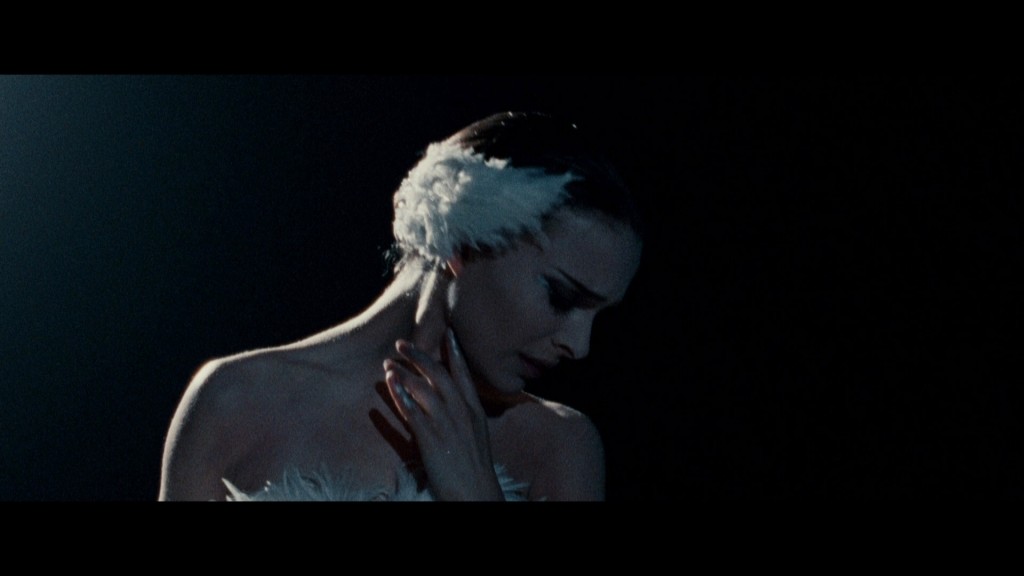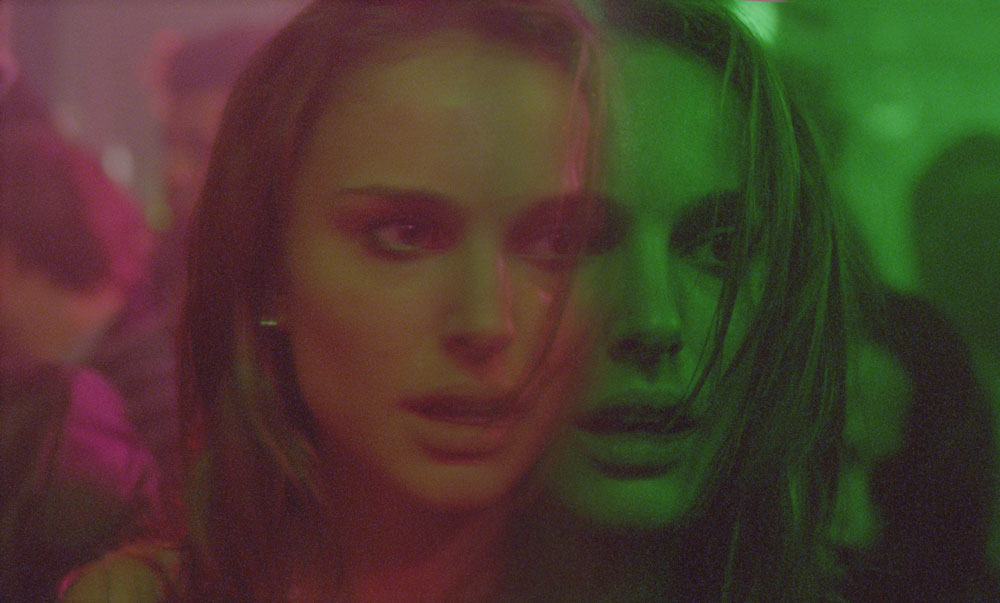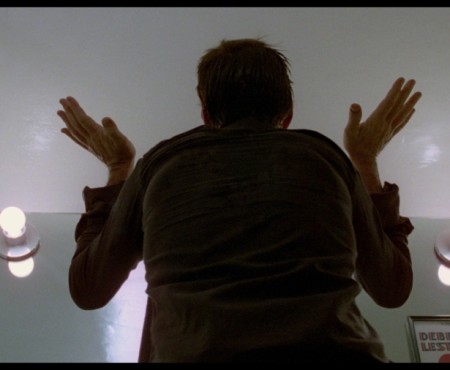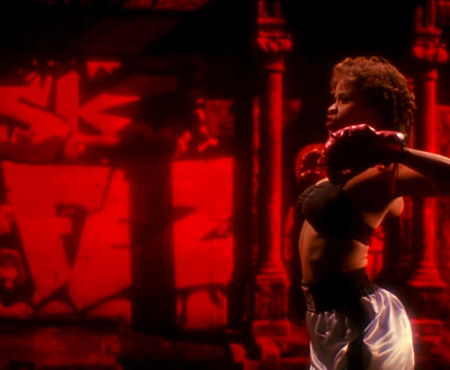Songs in the Key of Cinema is a bi-weekly look at the use of songs in film and how that music fits within the context of the film as a whole and a place where we’ll cover the moments in cinema that were music to our eyes and ears.
“The only person standing in your way is you,” ballet director Thomas Leroy (Vincent Cassel) hisses at workaholic ballerina Nina Sayers (Natalie Portman). Yet it is this very inability to separate herself from her work that becomes critical to understanding Nina’s psychosis. She becomes a very hindrance to herself, not able to lose herself to the dance and instead losing her mind altogether. A stunning transformation takes place throughout the film and only once does Nina let loose, allowing director Darren Aronofsky to dig deeper into the psychosexual aspects of his modern masterpiece Black Swan. She listens once, she doesn’t think, and she experiences the consequences.
The Song
“Don’t Think” originally comes off of the Chemical Brothers’ 2010 album Further, but not as a single. The EDM band released the track as a bonus song when the album made its debut on iTunes. “Don’t Think” starts off with a tame, repetitive beat, sounding like light brush on symbols, but it rushes into an entrancing melody that feels other worldly, fitting for the strange state of mind that Nina is in.
The Scene
In an effort to make up to Nina, Lily (Mila Kunis) takes her out to dinner and tries to get the naïve, repressed dancer out of her shell. Lily tries to egg Nina on about the predatory director of the dance company, but Nina’s immediate defensiveness makes Lily reply, “Wow, you really need to relax.” After Lily spikes Nina’s drink with MDMA, the two, and their newfound dates, head to a club, during which “Don’t Think” plays. In the scene, which is one of the most formally complex in the film, there are sparks of dark, dangerous images and symbols spliced in for only a few frames at a time. Nina loses herself.
The Analysis
For a majority of the film’s journey, various characters, from Nina’s mother to Lily to Thomas, continue to tell her to relax. They see the amount of stress that Nina is putting herself through, but fail to understand the full extent of her psychosis. Only when she is drug induced is she able to fully listen to them, almost as if both the song and the track are the catalyst for her to make the transformation from white swan to black. The scene in question has an interesting duality to it, following one of the themes of the film in general: at once, she is able to lose her inhibitions and freely move without the constraints of her own mentality hindering her, but a paranoia is suddenly imbued in her consciousness. IN the middle of the scene, the music stops and she sees doubles of herself, rendering the entire sequence hypnotic.
The Chemical Brothers’ delirious track blares in the club as red and green lights flash on and off in a strobing effect while we watch Nina dance. The red represents passion and desire while the green represents envy. In nearly every frame of this sequence, there is something manipulated within the frame, such as an object or image that recalls themes within the film. A moon, the dark sorcerer from Swan Lake, and Nina as the Black Swan permeate the sequence.
Momentarily, the electronic dance music lets up, replaced by Clint Mansell’s atmospheric and tense nightmare lullaby (which is Tchaikovsky’s “Swan Lake” played in reverse at a slower tempo), and Nina looks around. For one frame, Lily’s face is superimposed onto Nina’s face, just prior to Lily joining in and dancing with Nina. Soon after, the music begins again. The inclusion of a tonal interlude in the sequence, one that further establishes the nightmare, is indicative of the subjectivity of the film. Only she experiences this moment, even while other people are lost in the din of debauchery, and only she half-realizes the nightmare she is enduring, what with the plethora of doubles within the sequence itself. Her obsession with Lily continues to corrode what little sanity she has left.
“Don’t Think” is nearly lyric-less save for six words: “Don’t think, just let it go.” A comment that Thomas repeatedly uses to critique Nina’s performance is that she is unable to give herself fully to both roles, seemingly stuck living as the virginal, adolescent white swan. The role requires her, though, to be able to channel a dark sensuality and sexuality, a prowess of maturity that Nina lacks, but Lily has in spades. Lily, working as a near doppelgänger (allowing the film to operate as a riff on Satoshi Kon’s Perfect Blue and Dostoyevsky’s novella The Double), is the polar opposite: confident, extroverted, and sexually liberal. The club scene and “Don’t Think” allow Nina to make that transformation and to oscillate between the virginal white swan and the sexual black swan, both in the way that Nina hooks up with a guy in the club as well as her sexual encounter with Lily herself (black and white converging).

What is also critical to understand is that much of Nina’s rehearsal is burdened by her mechanical movements and performance. So invested in thinking about the role and thinking about the required moves within the performance, Thomas again suggests that Nina simply give herself to the Swan Queen. Such a critique is common for teachers to give to their pupils, but it seems especially important for Nina, who seems to self-consciously driven that her perfectionism is her ultimate downfall.
It seems dangerous, though, to consider the cataclysmic consequences of what Nina does when she does not think: she becomes ultra-paranoid and the environment around her in the club seems to close in, with Aronofsky’s tight framing suggesting a claustrophobia to the sequence. When Nina doesn’t dance sensually, she is turning around in fear. The darkness takes over her, with her subsequence actions in the film marking her as psychotic and dangerous.
Yet this might be exactly the character study that Aronofsky wishes to portray: the life of a young woman who is so ambitious that her psychosis refuses to allow her to not think, and when she finally does, her transformation into monster is complete. She is finally perfect.
The Conclusion
Juxtaposed against Clint Mansell’s manipulation of Tchaikovsky’s “Swan Lake”, the electro infused Chemical Brothers track seems out of place in an art house-cum-schlocky horror film such as Black Swan. Yet its very uncharacteristic nature and minimalistic lyrics amplify the film’s ideas and themes. On duality and perfection, Nina can’t not think. She’s plagued by the conditions of her psychosis. She only lets loose once. But at least she was perfect.




















